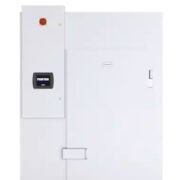When searching for apartments for rent, it’s crucial to prioritize soundproofing if you cherish tranquility. In your quest for the perfect rental, seeking out properties that accommodate non-permanent, easy-to-install soundproofing solutions should play a pivotal role in your decision-making process. This consideration is particularly important for those sensitive to noise or working from home.
As a tenant, it’s vital to explore cost-effective and non-invasive soundproofing methods that won’t jeopardize your security deposit. Before embarking on any soundproofing projects, it’s imperative to have a discussion with your landlord or property manager. This conversation is an opportunity to create a lease agreement that explicitly permits specific soundproofing modifications. Ensuring these terms are clearly outlined in the lease can prevent future disputes or misunderstandings. Always opt for DIY soundproofing techniques that are easily reversible and avoid permanent changes to the property, aligning with the terms of your lease and maintaining the integrity of the rental space.
Tips for Renters on Soundproofing
With the right approach, you can effectively reduce unwanted noise and create a more tranquil living space. Here are some crucial tips to guide you through the process:
Communicating with the Landlord About Noise Issues
Open communication with your landlord is crucial when it comes to soundproofing. Before you undertake any soundproofing modifications, discuss your plans with your landlord. Most landlords understand the importance of a quiet living environment and will be supportive of your efforts. However, ensure your proposed changes won’t violate any lease agreements or cause damage to the property.
Focusing on Removable Soundproofing Strategies
As a renter, it’s important to focus on removable soundproofing strategies that won’t cause permanent alterations or damage. This includes using rugs and carpets, sealing air leaks with removable products, and installing window coverings or removable acoustic panels. These strategies are not only effective but also easy to reverse when you move out.
Prioritizing High-Use Areas for Soundproofing
When soundproofing your apartment, prioritize the areas where you spend the most time or where noise is most disruptive. This might include your living room, home office, or bedroom. By focusing on these high-use areas first, you’ll get the most impact from your soundproofing efforts.
Documenting the Apartment’s Condition Before Making Modifications
Before you start your soundproofing project, document the current condition of your apartment. Take clear, comprehensive photos of each room and any specific areas where you plan to make modifications. This will protect you down the line if there are any disputes about the condition of the apartment when you move out.
Properly Removing Soundproofing Additions When Moving Out
When it’s time to move out, remember to carefully remove any soundproofing additions you’ve made. This includes taking down acoustic panels, removing window inserts, and sealing any holes or cracks you’ve filled. Be sure to repair any minor damage caused by your modifications, leaving the apartment in the same condition as when you moved in.
Noise-Reducing Tips for Renters Without Permanent Alterations
Here are some renter-friendly techniques that can significantly reduce noise in your apartment without causing any permanent changes or damages.
Using Rugs and Carpets for Sound Absorption
One of the simplest and most effective soundproofing techniques is to add more rugs and carpets throughout your apartment. These floor coverings have thick fibers and cushioning that absorb sound instead of reflecting it, which helps to dampen noise. This technique can be particularly effective in high-traffic areas and bedrooms. Remember to get your landlord’s approval before installing wall-to-wall carpeting.
Sealing Air Leaks to Prevent Noise Infiltration
Another straightforward method is to seal air leaks around outlets, windows, door frames, vents, and pipes using caulk or an acoustic sealant. This prevents noise from filtering through small gaps and cracks, contributing to a quieter environment. It’s an affordable and reversible method that won’t cause any damage to your rental apartment.
Installing Window Coverings for Noise Reduction
Heavy, thick, and blackout curtains on windows and doors can help dampen outside noise. You might also consider applying acoustic thermal window film as an extra sound barrier. For additional sound absorption, hang a thick blanket behind the curtains. Just be sure to select materials and styles that complement your decor to maintain a pleasant living space.
Strategic Furniture Placement for Sound Dampening
The strategic positioning of your furniture can also aid in sound blocking. Place couches, bookshelves, and other large furniture items against shared walls. The increased mass between you and the noise sources results in better sound insulation. This method is not only effective but also allows you to experiment with different layouts to optimize your living space.
Installing Removable Acoustic Panels
One of the most effective ways to block noise transmission is by installing removable acoustic panels. These panels are often made from materials such as mass loaded vinyl or nitrile butadiene rubber, which are known for their noise reduction capabilities. They adhere to your walls and ceilings and can be easily removed without causing any damage. Be sure to get your landlord’s approval before installing these panels.
Sealing Doors with Removable Products
Gaps around your doors can also let in a considerable amount of noise. Use removable seals, sweeps, and acoustic door panels to seal these gaps effectively. For an even tighter seal, you can use a removable sealant on your door frames. These products are designed to be easily removed when you’re moving out, leaving no trace or damage behind.
Researching Apartment-Safe Soundproofing Options
Lastly, always be on the lookout for new and innovative soundproofing products designed specifically for apartments. These products are created with the renter in mind, focusing on maximum noise reduction without causing any permanent damage to the property. It’s crucial to get your landlord’s approval before installing any soundproofing solution.
The Benefits of Soundproofing Your Rental Apartment
Now that we’ve detailed various effective soundproofing techniques for apartments for rent, let’s delve into the benefits of creating a tranquil living space. Soundproofing your apartment is about more than just reducing noise – it can drastically improve your quality of life in several ways.
Enhanced Privacy Through Soundproofing
Living in an apartment often means sharing walls with neighbors. While this can foster a sense of community, it can also pose challenges when it comes to privacy. Soundproofing your apartment can greatly enhance your privacy by preventing sound leakage. This ensures that your personal conversations or activities remain private, creating a more secure and comfortable living environment.
Improved Sleep Quality with a Quieter Environment
A noisy environment can disrupt sleep patterns, leading to fatigue and decreased productivity. Soundproofing your bedroom can guarantee a peaceful atmosphere for uninterrupted rest. This is especially crucial for those with irregular sleep schedules or light sleepers who can be easily woken by external noises.
Reduced Stress Levels from Minimized Noise
Excessive noise can lead to heightened stress levels and hinder relaxation. A tranquil, soundproofed apartment can contribute to a calm and stress-free living environment. As research indicates, reducing unwanted noise can be beneficial for your mental well-being and overall health.
Improved Focus and Productivity in a Tranquil Space
Whether you work from home or engage in hobbies that require concentration, a quiet environment is essential. Soundproofing can eliminate distractions, allowing you to focus more efficiently on your tasks. This can be particularly beneficial for students, remote workers, or anyone seeking to boost their productivity within their living space.














Comments